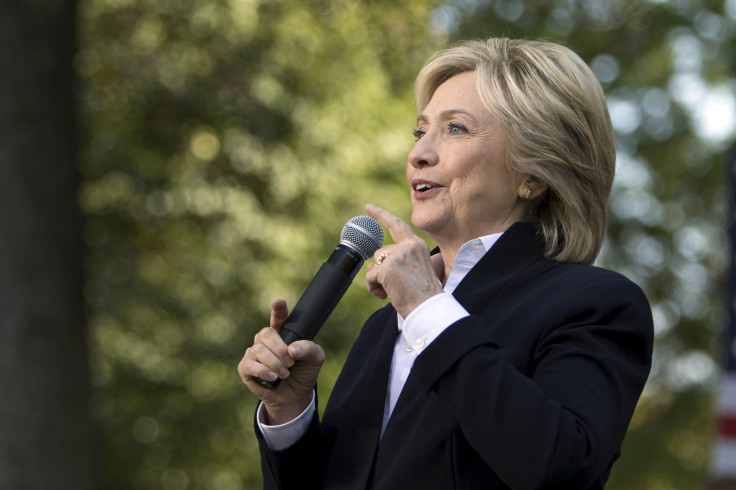Hillary Clinton’s TPP Flip-Flop: Opposition To Trade Pact Aligns Her With Sanders And Unions, Against Biden And Obama

Hillary Clinton’s announcement Wednesday that she opposes the Trans-Pacific Partnership puts her in alignment with labor unions whose support she needs for her presidential candidacy. As secretary of state, Clinton had publicly supported the TPP, President Barack Obama’s long-nurtured trade deal, and her staff promoted it to other governments. But as a Democratic candidate for president, Clinton has faced pressure from the left to oppose the deal.
The Obama administration has agreed to changes to the pact that address progressive and union concerns, so the deal is somewhat more accommodating to those constituencies now -- when Clinton is rejecting it -- than it was when Clinton supported it.
Clinton did win the backing of a powerful labor union opposed to the deal before she publicly rejected the pact. In August, she received the endorsement of the International Association of Machinists and Aerospace Workers -- which endorsed her in 2008 as well -- despite objections from the union’s rank-and-file members.
At the time, Clinton was waffling on the trade deal, urging the president to work with Democrats in Congress displeased with the pact but refusing to say whether she would support it. But the machinists union’s position was clear, calling the deal “disastrous.”
Unions have been adamant that the TPP include provisions to prevent currency manipulation. The United Association of Journeymen and Apprentices of the Plumbing and Pipefitting Industry announced in September it would support Clinton’s campaign, three months after its political committee donated $1 million to the pro-Clinton super PAC.
In March, the plumbers and pipe fitters union signed onto a letter sent by labor unions and progressive groups criticizing the Obama administration for its failure “to incorporate into the Trans-Pacific Partnership the enforceable disciplines against currency manipulation that bipartisan majorities in both the Senate and House support.”
“I'm worried about currency manipulation not being part of the agreement,” Clinton said Wednesday on PBS. “We've lost American jobs to the manipulations that countries particularly in Asia have engaged in.”
She also expressed concern that the deal would be a boon for the pharmaceutical industry. “I'm worried that the pharmaceutical companies may have gotten more benefits, and patients and consumers fewer,” Clinton said in explaining her opposition.
However, the finalized TPP agreement includes fewer benefits for the pharmaceutical industry than the Obama administration was pushing for while Clinton supported the trade deal.
The U.S. Trade Representative, which has led negotiations on the TPP, wanted 12 years of exclusivity for biologic pharmaceutical products in the deal, and was reportedly seeking that provision since 2011. The finalized agreement is expected to include shorter patent protections on biologics.
In opposing the TPP, Clinton is now siding with her rival Bernie Sanders, a progressive who has shown surprising strength in Democratic primary polls, and against a putative foe, Joe Biden.
Sen. Sanders, the independent from Vermont, has long opposed free trade deals. Biden is rallying members of Congress to back the TPP. A Biden representative told the Wall Street Journal that the vice president “supports the TPP agreement and will help pass it on the Hill.” That report was published Wednesday, just hours before Clinton revealed her new position on TPP.
The TPP is the third major trade deal on which Clinton has changed her views. She said in 1996 that the North American Free Trade Agreement, signed by her husband, was “proving its worth.” Four years later, she called it “flawed,” and maintained her opposition to NAFTA during her failed 2008 presidential campaign.
During that campaign, Clinton also spoke out against a free trade agreement with Colombia, citing concerns about threats of violence against workers attempting to organize. But in 2010, as secretary of state, Clinton said the deal was “strongly in the interests of both Colombia and the United States.”
On the TPP deal, it’s possible Clinton may switch sides again. She seemed to preserve some wiggle room for herself Wednesday.
“As of today, I am not in favor of what I have learned about it,” Clinton said.
© Copyright IBTimes 2024. All rights reserved.












